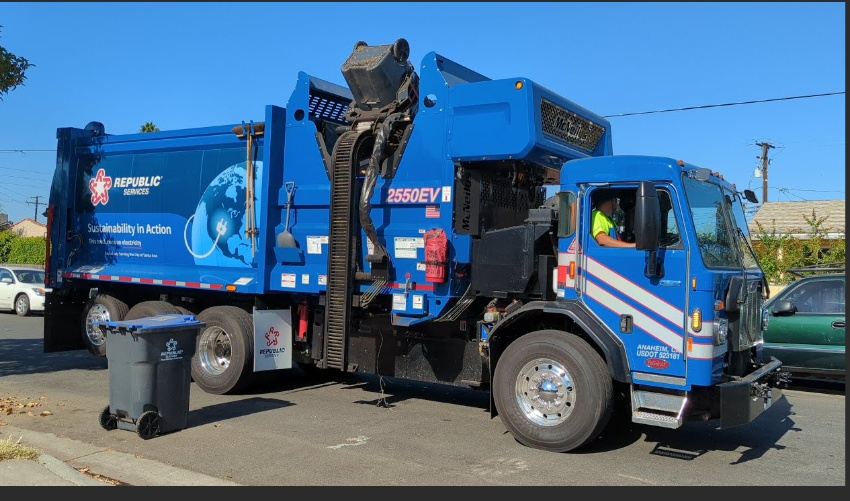Polis’ revised budget proposal includes full-day kindergarten plan (VIDEO)

Colorado Gov. Jared Polis won’t present his budget proposal to the Joint Budget Committee until Wednesday — but Tuesday he and his staff gave a sneak peek to Capitol reporters.
His predecessor, former Gov. John Hickenlooper, presented his budget proposal for the 2019-20 fiscal year on Nov. 1. It’s standard for a new governor to tweak the proposal of his predecessor to fit his policy priorities.
The biggest change to the new governor’s budget proposal is Polis’ plan to fully fund full-day kindergarten, at $227 million.
Polis campaigned on the kindergarten proposal and announced it as his top priority in last week’s State of the State address.
> RELATED: Weiser amends attorney general’s budget request, wants to review wrongful conviction claims
Currently, the state covers a little over half the cost of full-day kindergarten. For most school districts in the state, that means offering full-day kindergarten but only footing the bill for half a day.
According to the Colorado Department of Education, in the 2018-19 school year, 170 out of 178 school districts offer full-day kindergarten, with parents often picking up part of the tab.
The eight districts that don’t offer full-day kindergarten are almost all entirely in small rural districts; six offer half-day, and two do not offer kindergarten.
The 170 (of 178) Colorado districts that offer full-day kindergarten enroll a total of 49,941 students in the program. However, only 19,223 — less than half — of those students receive kindergarten for free.
Another 13,324 students attend part-time kindergarten, according to the Department of Education, with 1,653 receiving that education for free.
School districts can charge tuition to cover the difference between the portion that the state covers and what it takes to make up the rest.
Polis is adamant that the full-day funding is not a mandate to districts to offer full-day kindergarten. But those who don’t offer it won’t get any additional kindergarten funding from the state.
Polis told reporters Tuesday that a lot of school districts divert funds from other areas to pay for full-day kindergarten, and his proposal will free up dollars for those districts for items such as teacher pay or smaller class sizes.
He said that his plan will add 8,100 slots in full-day kindergarten.
Lauren Larson, director of the Office of State Planning and Budgeting, said the money to pay for full-day kindergarten is coming from the state’s current budget surplus. In December, her office predicted the impact on local property taxes from the Gallagher amendment, which governs property tax rates, would be less than originally anticipated.
Combined with lower forecast growth in enrollment and inflation, the state (and the governor) have another $274 million available in 2019-20 and $327 million forecast in 2020-21.
Polis also plans to convert an existing scholarship program for K-12 teachers to a loan forgiveness program and add $6.5 million to the funding.
On other fronts, Polis supports many of the budget priorities laid out by Hickenlooper in November, including boosting the state’s general fund reserve to 8 percent, and putting $77 million toward reducing the debt to K-12 education, currently at $672 million.
There’s “great consistency with the previous administration’s budget,” Polis said.
Polis also will support a Hickenlooper request for $10 million for initiatives proposed by the state’s Education Leadership Council, which include addressing teacher shortages and providing incentives for students working on internships and apprenticeships.
Another $6.5 million, also from the Hickenlooper budget request, would go to scholarships to college students who commit to teaching in rural and underserved school districts.
Students at the state’s public colleges and universities can breathe a one-year sigh of relief on tuition, as both the Hickenlooper and Polis budget requests commit to ensuring no tuition increases for the 2019-20 school year, at a cost of $121 million.
Polis plans to set aside $1.3 million to cover the costs of setting up a program that allows Coloradans to buy prescription drugs from other countries. That will require legislation, which has already been introduced by Democratic Sens. Robert Rodriguez of Denver and Joann Ginal of Fort Collins.
Another proposal that will require legislative approval: rural economic development grants. Polis wants $2.5 million for early stage businesses in rural communities, said Larson, the budget office director. Under his proposal, which is contained in a bill sponsored by Republican Sen. Don Coram of Montrose, the money would cover $50,000 grants, with one-third of the grant to be matched by non-state funds.
On health care, Polis proposes $1 million for “reinsurance” — insurance that covers insurance companies for major health care claims, for example. The proposal calls for a model that could be used in Colorado to drive down health insurance premiums.
A previous effort along those lines in the 2018 session died in the state Senate, in part due to its $270 million cost. Such a plan would require federal approval and a bill from the General Assembly.
Polis also intends to continue Hickenlooper’s request for $30 million for the state water plan over the next three years.
Polis’ budget amendment didn’t go over as well as you might expect with the Senate Democrats who sit on the Joint Budget Committee.
JBC Chair Sen. Dominick Moreno of Commerce City and Sen. Rachel Zenzinger of Arvada both applauded the full-day kindergarten funding but expressed doubts that the state will be able to pay for it past the next year or two.
Zenzinger said that the state may have to go with a phase-in approach rather than trying to set up the whole program all in the first year, although Polis promised full-day kindergarten would be available by fall 2019.
It’s not off the table to phase in the full-day kindergarten, Zenzinger said.
Moreno noted some school districts will have capital costs as well, and it will take districts time to absorb the new programming and other issues, such as classroom availability.
“My advice to those departments and districts — tread carefully and don’t make too many plans for these dollars” until the final negotiations are completed, Moreno said.
“We don’t want to create more unfunded mandates for the districts; we need to make sure we’re funding it in the out years.” The state has the money now but a recession is always just around the corner, she indicated.
Moreno noted the budget amendment had nothing for transportation, save for what was contained in last year’s Senate Bill 1, which would provide $495 million in 2019-20 for transportation.
Polis didn’t add to it, although Moreno said transportation was something “we heard loud and clear from our constituents. They are tired of sitting in traffic and they want a better infrastructure.”
Moreno said the committee will work with Polis on other issues, such as human services and corrections, particularly since the state’s public and private prisons are both at capacity.
Ultimately, however, it’s the JBC that writes the budget, he pointed out. The governor just submits a request.
Zenzinger said she was pleased that Polis continued Hickenlooper’s commitment to no public-college tuition increases in 2019-20 and his attention to addressing the state’s teacher shortage.












